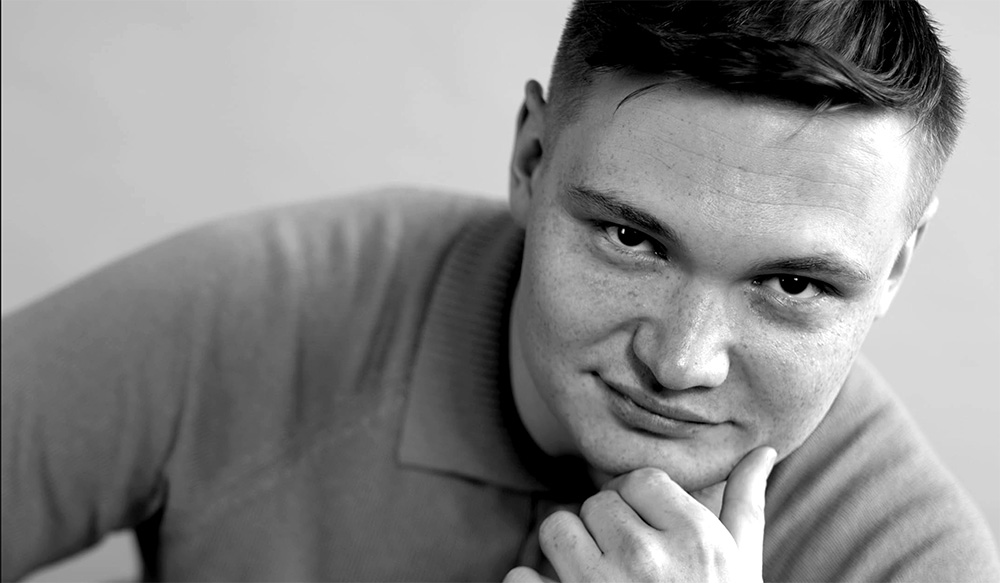Director Erik Jansan About His Film
“This film offers a raw and unflinching look at the struggles faced by Ingrid, a single mother in a small village in eastern Slovakia. Battling financial hardships and societal biases, Ingrid’s decision to become the legal representative of a young Roma girl leads to a tumultuous journey fraught with personal demons and moral dilemmas. We were compelled to bring THE PROFESSIONAL PARENT to our audience because of its bold exploration of difficult themes, including the harsh realities of poverty and the complexities of parenthood.”
“Ingrid’s descent into violence towards the Romani child forces viewers to confront uncomfortable truths about prejudice and the depths of human frailty. Audiences should see ‘The Professional Parent’ for its fearless portrayal of the human condition and its unwavering commitment to truth. It’s a film that challenges preconceptions, ignites important conversations, and ultimately offers a glimmer of hope amidst the darkness. Moreover, the film vividly captures the universal dimension of societal dynamics, shedding light on the treatment of minorities across contemporary societies worldwide.”
Erik Jasaň is a graduate in dramatic art at the Conservatory in Bratislava and media production at the Higher Vocational School of Film in Košice, Slovakia. He completed the Further Education of Film Language at the Academy of Performing Arts in Bratislava. As a director, he deals with sensitive topics that affect the inhabitants of eastern Slovakia.
His short films premiered at festivals such as the 8th Bengaluru International Short Film Festival (Oscar qualifying), 13th Youth Film Festival in Sarajevo, his fiction music video Dennyiah – RECALL (2022) starring Tatiana Pauhofová had its U.S. premiere at the 45th Denver Film Festival. He is the co-producer of the film “THE WALLEY OF THE WIDOWS” which won the Doc Around Europe Award at 38th DOK.fest in Munich. He also worked as 1AD for the HBO docudrama, The Car Gans (2024).
Cast: Ela Lehotská (Ingrid), Oľga Solárová (Grand-mère), Klára Sviteková (Martinka), Mariana Kroková (Samantha), Andrej Šoltés (Directeur)
Producers: Erik Jasaň (Slovakia) & Marian Crisan (Romania)

Director Erik Jansan

Gregg W. Morris Publisher, Editor, Reviewer
What is this film about? Genre?
Our film is about how a white family begins to fall apart after they adopt children of Romani descent from an orphanage. It’s a social drama set in Slovakia. The main character, Ingrid, a middle-aged woman, tries to escape a difficult financial situation by becoming a professional parent to a Romani girl.
What do you want potential audiences to get out of your movie?
I want the audience to gain an honest understanding of what is happening in some professional families in Slovakia. I admit the film portrays the story critically, but during my research, I also met professional parents who do their job with love. However, our film focuses on the fact that some parents become professional caregivers solely for profit.
Professional parenting should be a calling. Many families in the more underdeveloped regions of eastern Slovakia take advantage of this “comfortable” work-from-home opportunity, knowing they will be caring for several Romani children. Given the stigma against the Romani population in Slovakia, it’s possible that some parents, even while caring for Romani children, still harbor racist attitudes.
Why did you make this movie? What was the inspiration?
Six years ago, I visited an orphanage while looking for an actor for another project. I conducted acting exercises with the children, and through these exercises, they began to open up emotionally, sharing their feelings and problems related to professional parenting. At the time, I wasn’t aware of this issue. A year later, my close family experienced something similar when a family friend became a professional parent, and I ended up living with Romani children, which led to tensions in our family.
How did you go about getting a cast and crew?
It was a very personal process. First, it was crucial to explain the subject matter, and only then could we move on to production. For the actors, casting Ela Lehotska as Ingrid was a natural choice. Ela has an immense capacity for expressing love, but there’s also an intensity within her that can erupt during a crisis.
She’s always been cast as a positive, loving mother in Slovak and Czech films, so it was a challenge to see her in a different kind of role. It was also important for me to collaborate with Romanian cinematographer Tudor Mircea. We connected quickly and shared a collaborative approach. We did a pre-shoot to experiment with different ways of capturing various scenes. After filming, Romanian co-producer Marian Crișan, director of the Cannes-winning film Megatron (2008), joined us. Marian was not only a co-producer but also provided invaluable feedback during post-production.
Why did you make a short and not a feature length?
There are several reasons. Firstly, this is my professional directorial debut (not counting student exercises). Unlike most filmmakers in Slovakia, I didn’t attend film school, so my path to filmmaking was a bit unconventional compared to those who studied at the Academy of Performing Arts in Bratislava. I’m now also considering developing this story into a feature-length film.
What if any would you do differently if you went back in time to make changes?
Probably nothing. We achieved what we aimed to within the time and budget constraints. Sure, the story could have extended to 30 minutes, and I could have expanded some scenes, but those are more production concerns than directorial ones.
Are you planning on using the production of your short to make a longer version, a feature length film or a series or a Netflix project?
I’m thinking about it.
Biggest Challenges? Biggest Surprises?
My biggest challenge was capturing and portraying the truth. I want to tell stories that move me, stories I believe in. I aim to evolve my visual style in a more subjective direction. As for surprises, I was shocked during the casting process for the Romani girl.
Many of the children who auditioned came from professional families, and one professional parent said, “Our orphanage director forbids us from forming emotional bonds with the children… you know, these kids will likely move from family to family, so it’s not good to get too attached.” I was stunned that someone could care for a child in their home without forming a bond. That line didn’t make it into the film, but it easily could have.
Where will film screen first? Date? Subsequent screenings?
The film had its world premiere at the Oscar-qualifying Festival Internacional de Cine de Lebu in Chile. Here are the upcoming premieres:
• North American Premiere: HollyShorts Film Festival (Oscar® & BAFTA-qualifying)
• Asian Premiere: Balinale (International Bali Film Festival)
• New York Premiere: New York Shorts International Film Festival (Canadian Screen Awards-qualifying)
• European Premiere: 17th CineEast – Central and Eastern European Film Festival
• Slovak Premiere: 19th Cinematik – International Film Festival Piestany
• Polish Premiere: 15th “Camera Action” Critics Film Festival Lodz
Where’s home?
My home is Slovakia. I was born and raised here, and I plan to make films that honestly address the problems and sensitive issues affecting people here, in Slovakia.
For more information, click here for his International Movie Data Base page.
Gregg W. Morris can be reached at gregghc@comcast.net, profgreggwmorris@gmail.com